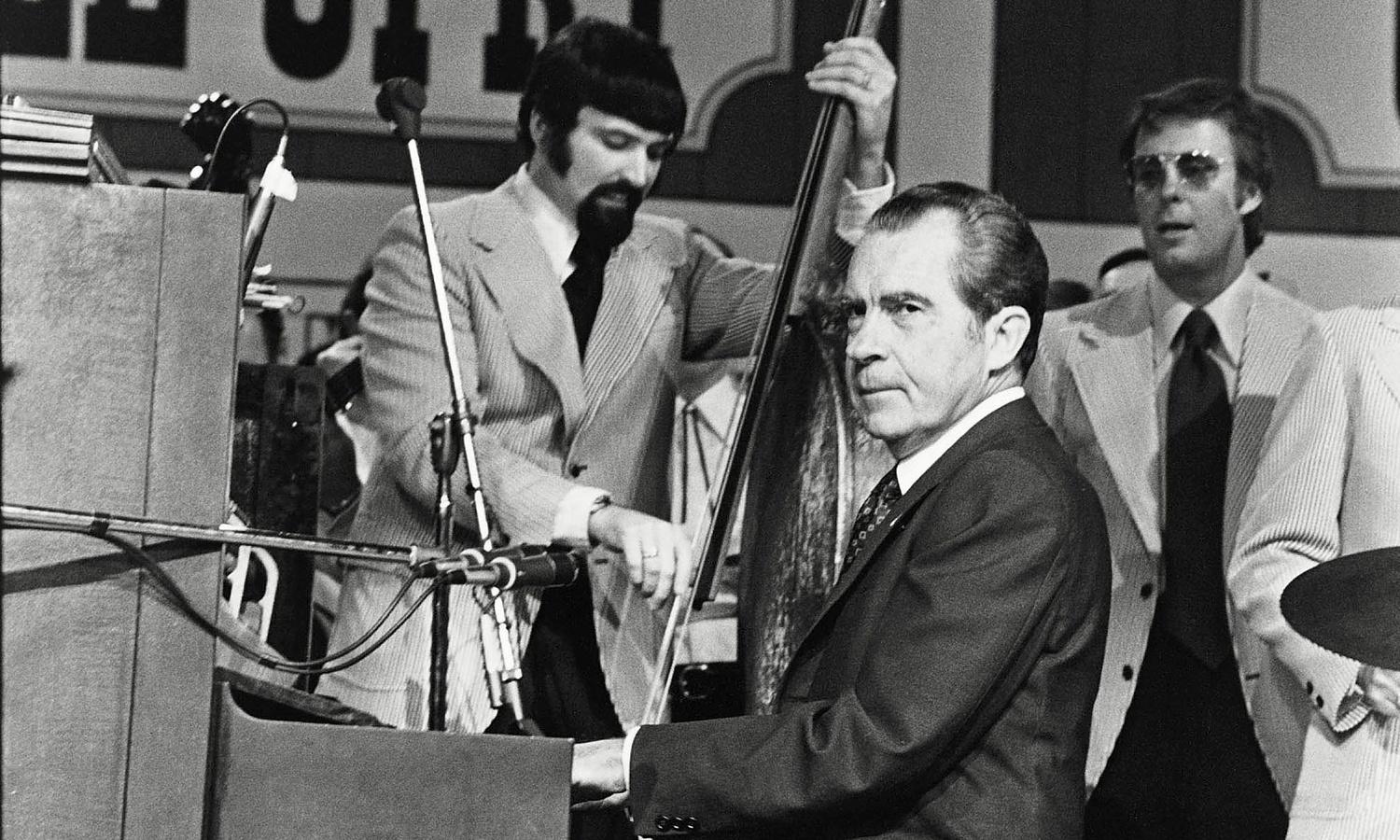Why Richard Nixon Declared October Country Music Month
Little remembered among the accomplishments of Richard Nixon’s presidency is this proclamation: in October 1970, Nixon asked the American people to mark October as Country Music Month.
As far as the historical record shows, President Nixon’s love for country music dated all the way back to 1969 when Merle Haggard’s “Okie From Muskogee” hit number one on the Billboard country charts. “Okie,” which celebrated small-town values and derided the counterculture, struck a chord. Just a couple months later,Nixon deliveredhis now-famous “Silent Majority” speech, extolling the virtues of traditional middle America. But country music was a long-term play for Nixon. Come the 1972 election, he abandoned the jazzy pop of”Nixon’s the One” (used in the 1968 campaign) for a pedal steel:
Nixon issued proclamations about Country Music Month in ’71, ’72, and ’73. (President Ford took up the banner after his resignation.) Merle Haggard, Roy Acuff, Johnny Cash, and Glen Campbell performed at the Nixon White House, and only a month before he left office, Nixon became the first president to visit the Grand Ole Opry, where he had the distinct honor of being taught to yo-yo by Roy Acuff.
Country music returned Nixon’s affection, mostly. There was the 1972 tribute album put together by the Country Music Association, which had the cowboy singer Tex Ritter preface each song by tying its themes to the president’s speeches and policies. Before Loretta Lynn’s “Coal Miner’s Daughter,” Ritter observed:
Country music, Mr. President, like yourself, has always gloried in the hard work that men do. Our country writers and singers have always paid homage, as you have, to the workingman. In one of your speeches you said, “We must give more respect to the proud men and women who do work that is all to often considered menial. (via)
No surprise, though, that Johnny Cash gave Nixon some grief. During his visit to the White House in 1970, Cash pulled out his new anti-war, pro-hippie song, “What Is Truth.”
Like the rest of the nation, country music would eventually turn on Nixon. Tom T. Hall wrote”Watergate Blues,” and the often-offensiveDavid Allan Coe released “How High’s the Watergate, Martha?” But John Denver beat everybody to the punch with a track on his 1969 album Rhymes & Reasons entitled “The Ballad of Richard Nixon”: ten seconds of silence.
